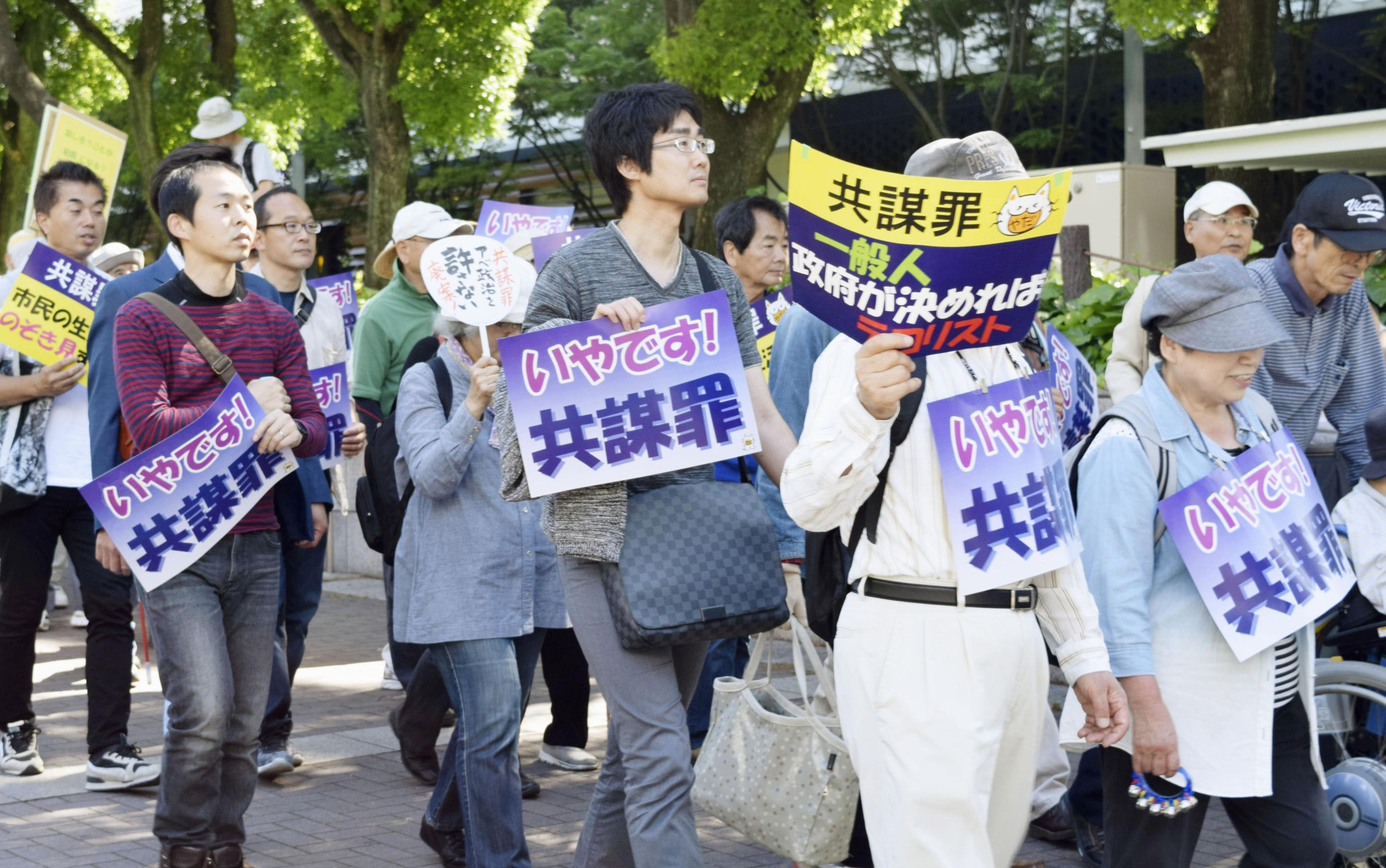"The recent flurry of legislation, including a proposed anti-conspiracy amendment to the organized crime law, recalls prewar Japan," Kobe University criminal law scholar Hirofumi Uchida told the Asahi Shimbun in an interview in March.
"Prewar Japan" is a pregnant phrase. It suggests militarist fascism. The legislative flurry began in 2013, when the government of Prime Minister Shinzo Abe passed a law strengthening protection of government secrets. In 2014 came a law allowing the constitutionally pacifist Self-Defense Forces to engage for the first time in "collective self-defense." In 2015, SDF personnel participating in international peacekeeping operations were permitted, again for the first time, to use weapons for purposes other than self-defense.
Each of these laws provoked spirited but impotent opposition. The governing Liberal Democratic Party and its allies, Komeito and Ishin no Kai, are too strong numerically to be checked. The anti-conspiracy amendment, which would make planning to commit certain crimes a crime, will almost certainly be passed within weeks. Its ominous overtones alarm many, but nothing now foreseeable can stop it.



